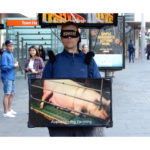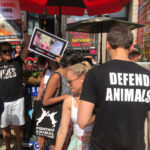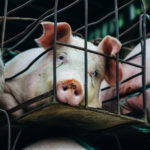Preventing Animal Cruelty in Law: An Interview With Animal Justice Party MLC Emma Hurst
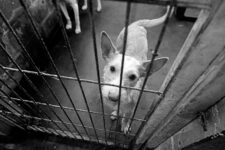
Two weeks ago, some much overdue amendments were made to NSW animal cruelty laws that reflect the serious nature of these crimes. The new measures also reveal that our society has progressed to a point where it’s better recognising the gravity of this type of offending.
The Prevention of Cruelty to Animals Amendment Bill 2021 altered the Prevention of Cruelty to Animals Act 1979 (NSW): the legislation containing most state laws of this nature. The changes also placed extra restrictions on the most serious animal crimes contained in the Crimes Act 1900 (NSW).
Significantly, the bill dramatically increased the maximum penalties that apply to animal cruelty offences for both individuals and corporations. And it provided courts with the power to issue disqualification orders to prevent cruelty offenders from purchasing or keeping animals.
A last minute Animal Justice Party amendment to the government-drafted bill further saw the introduction of automatic lifetime bans on animal ownership and the ability to work with animals placed on those who have offended against animals in the most extreme manner.
Oversight established
Animal Justice Party MLC Emma Hurst has been pushing for these laws since she entered NSW parliament following her election in early 2019. And the precursors to the Coalition government laws can be found in a private members bill she introduced in November last year.
Hurst announced last week that her party has successfully established an annual parliamentary inquiry that will provide oversight in relation to how animal cruelty laws are being enforced in this state. And the Animal Justice MLC will be its deputy chair.
Two approved charities are responsible for the enforcement of and compliance with the animal cruelty provisions contained within the Prevention of Cruelty to Animals Act. These charities are the RSPCA NSW and the Animal Welfare League NSW.
Up until the establishment of the inquiry, there has been no oversight as to how the animal cruelty laws are being enforced, whereas when it comes to the NSW police, the Law Enforcement Conduct Commission (LECC) keeps a check on how it’s enforcing the majority of criminal laws.
Protecting animals from lawful cruelty
But while it’s appreciated that the Berejiklian government is coming to the table in regard to protecting animals under the law, the NSW Coalition has also been responsible for enacting laws that prevent animal rights activists from taking nonviolent direct action against animal abuse.
The Right to Farm Bill 2019 amended the Inclosed Lands Protection Act 1901 (NSW), and specifically the draconian section 4B aggravated trespass offence to see first of their kind custodial penalties placed upon those attempting to protest on agricultural land.
Sydney Criminal Lawyers spoke to Animal Justice Party MLC Emma Hurst about the need for oversight when it comes to animal cruelty law enforcement, the impact restrictions on protest have had and the protections she’s seeking that would prevent animal abusers from working with kids.
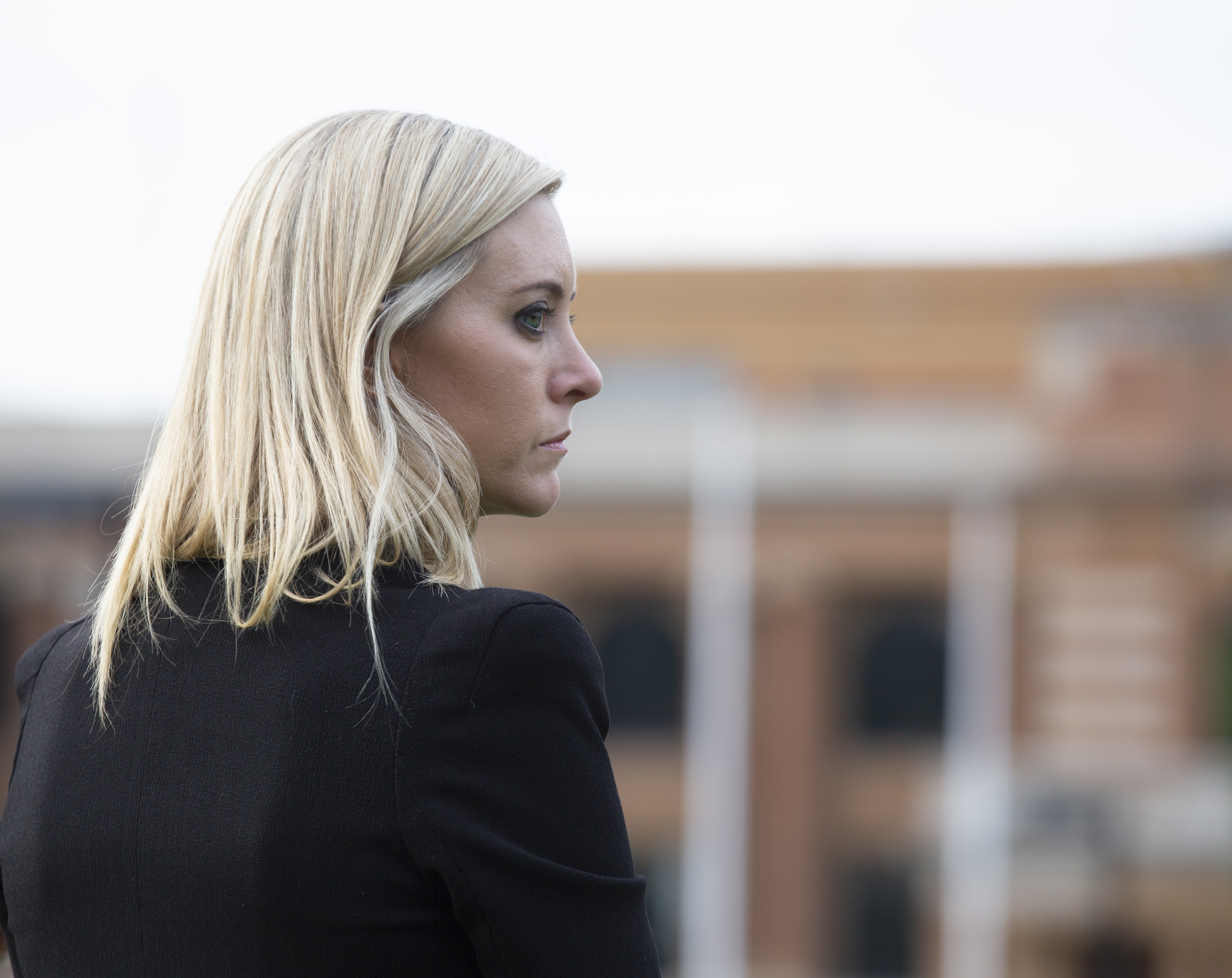
Firstly, you’ve just announced that NSW parliament has established a yearly oversight inquiry into how animal cruelty laws are being enforced.
Emma, why is this needed?
This annual parliamentary inquiry will provide an unprecedented opportunity to scrutinise the enforcement of NSW animal cruelty laws and bring about some much-needed transparency in this space.
The way animal protection legislation is enforced in NSW – and around Australia – is very unusual and problematic. It is the only criminal legislation that relies on private charities to investigate and enforce the law.
In NSW, these charities are the RSPCA NSW and Animal Welfare League, who primarily rely on money they have fundraised from the public to do their work.
RSPCA NSW receives only 6 percent of their enforcement funding from the government—the lowest of any state or territory.
Imagine if the police had to organise a fun-run to raise the money to investigate and charge people who caused accidents while driving under the influence. Sounds absurd – and it is.
But that’s the state of animal protection enforcement in NSW.
This system also creates issues of transparency and accountability since these private charities are not subject to the same oversight measures as the NSW police – and that’s why this inquiry is so important.
To be clear, the aim of this inquiry is not to criticise the enforcement agencies. Rather, it is an opportunity to ask questions about their work, identify barriers to enforcement and figure out solutions – whether that is changes to the legislative framework, funding arrangements or improving relationships with other government agencies.
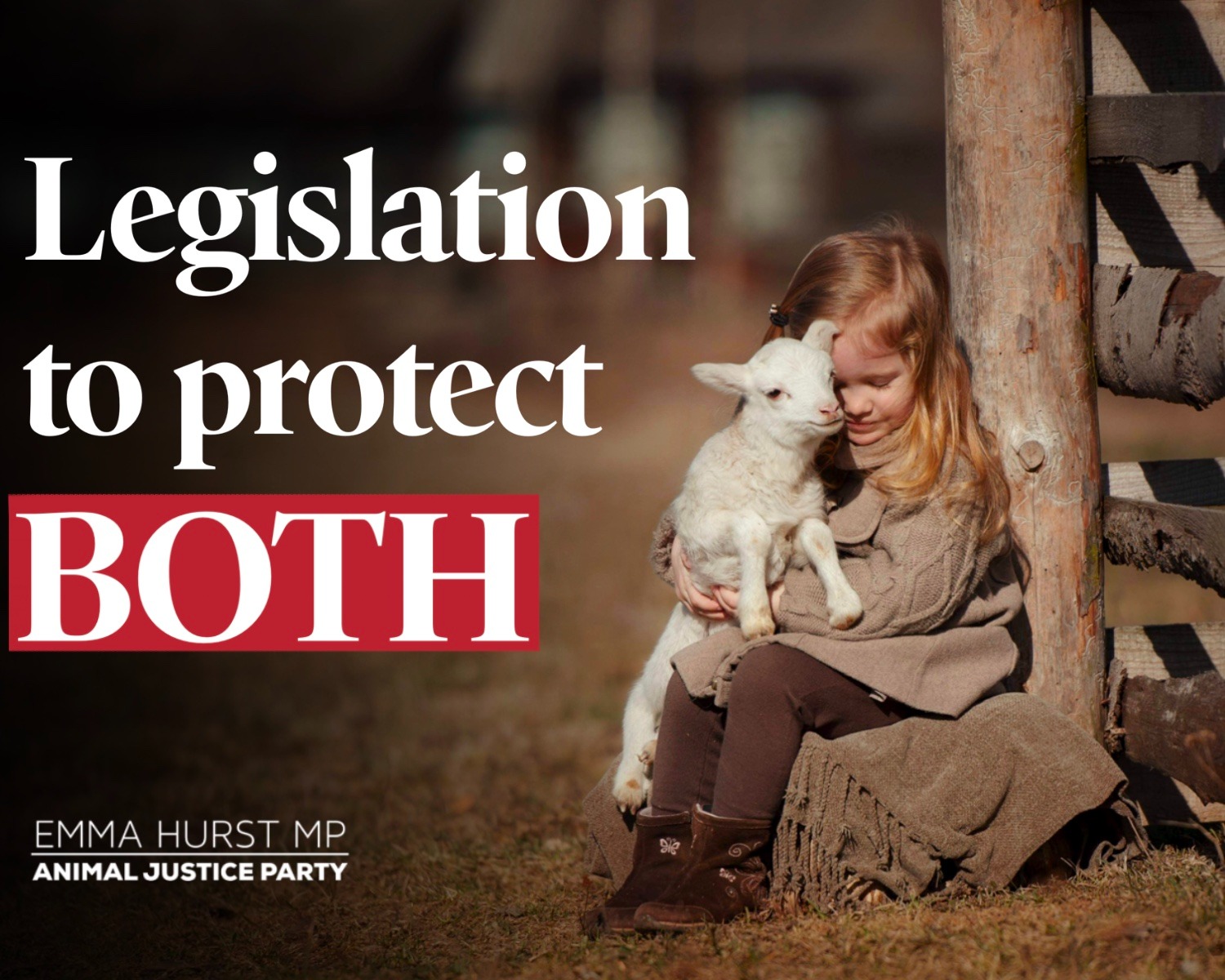
This month has also seen state parliament pass a series of laws that you’ve been pushing for over the past two years.
One of the major changes you’ve highlighted is the lifetime animal ban for abusers that the Animal Justice Party put forward as a successful amendment to the government drafted bill.
How do these new measures work?
This amendment passed by the Animal Justice Party means that individuals convicted of serious animal cruelty or bestiality offences contained in the Crimes Act 1900, will be banned from having any further animals in their care for life.
Due to a serious oversight in the law, the power to impose animal bans has never been available to the courts for the most serious animal cruelty offences contained in the Crimes Act.
This has shocking consequences – it means that no individual convicted of bestiality in NSW has ever received an animal ban. It means that sexual abusers could be legally working with animals right now.
This bill corrected this gap in the law – and the Animal Justice Party amendment took it one step further, by providing that these bans come into effect automatically upon conviction, and are permanent, lifetime bans.
This is not meant to be punitive – it is a protective measure.
In the same way that we would not allow a child abuser to work with children again, someone who commits serious, intentional acts of animal abuse – like beating an animal to death – should not be allowed to work with or have custody of animals again.
You’ve also been pushing to have these lifetime animal bans extended so that these types of offenders can be prevented from working with children.
How would this work? And why is there an issue with people who’ve offended against animals working with kids?
There is a significant body of research which shows that the abuse of animals in the home is a strong indicator that children are also being abused.
My concern is that the Child Protection (Working with Children) Act 2012 (NSW) does not properly address this link.
This issue first came to my attention when I learnt that a man who was charged with stabbing a dog with a pitchfork six times, and who then left her strung up to a tree to die, was still working at a petting zoo, which regularly visited children.
I was shocked to find that people convicted of high-level, intentional acts of animal cruelty were not automatically disqualified from holding a Working With Children Check (WWCC).
As I dug deeper, I found that other animal cruelty offences do not even trigger a mandatory assessment, and that offences charged and prosecuted by the RSPCA and Animal Welfare League were not always making it to the Office of the Children’s Guardian when it came time to do a WWCC.
I passed a notice of motion in the Legislative Council calling for reforms to fix these gaps in the legislation and have met with the minister on several occasions. I feel confident we will see legislation passed on this soon.
The common factor between animal abuse and child abuse is that the victims are incredibly vulnerable. People who harm animals are a risk to the broader community, and particularly children, and we need to protect them both.
The amendment also saw a number of other measures you’ve been campaigning for, including increased maximum penalties. Can you elaborate on these?
An increase in penalties for animal cruelty offences in NSW was long overdue, and something I have been campaigning for since I first got elected.
In fact, it was not until I put up my own bill increasing penalties for animal cruelty in November 2020 that the government finally took action.
Prior to the Prevention of Cruelty to Animals Amendment Bill 2021 – which passed in June 2021 – NSW had the lowest statutory penalties for animal cruelty in Australia.
An individual act of animal cruelty was punishable by a maximum fine of just $5,500 or six months imprisonment or both.
This bill takes NSW from being one of the softest states on animal cruelty, to one of the toughest.
Notably, it will increase the maximum individual penalty for animal cruelty to $44,000 and 12 months’ imprisonment, and $110,000 or two years imprisonment for aggravated cruelty. Maximum penalties for corporations have also significantly increased.
While tougher penalties cannot undo the pain and suffering caused to animal victims of violence, it recognises the serious nature of the crime and can also act as a deterrent to future acts of animal abuse.
We spoke at the time the Right to Farm laws were being considered. These measures restricted the ability of animal rights activists to take protest actions. And they came on the back of federal laws pushed by the prime minister to stifle the ability of “green criminals” to campaign.
In your understanding, have these laws made a difference to activists taking direct action in relation to animal cruelty?
Given state COVID-19 lockdowns and restrictions over the past 18 months, it is hard to know what changes in direct action have occurred.
Certainly, we’ve seen a strengthening and increase in numbers of animal activists becoming involved in a variety of advocacy routes including street activism and education.
Whatever the outcome, those who advocate on behalf of animals won’t be going anywhere any time soon.
The issue of animal protection and the level of animal cruelty that legally occurs in this country is too great, and advocates will continue to find new and innovative ways to speak out for animals and change people’s behaviour.
And lastly, Emma, after seeing the criminal amendments passed that effectively provide crimes against animals with more gravity in law, what other animal-related issues and reforms do you have in your sights?
There are so many reforms to animal cruelty laws that are desperately needed in NSW.
The Prevention of Cruelty to Animals Act was introduced in 1979, and it has not had a major overhaul in the 40 years since.
The NSW government says it will be introducing “modernised” animal protection legislation by the end of 2021, so I will be watching that closely and no doubt introducing my own amendments to better protect animals.
I will continue to push for reforms that protect the most vulnerable members of society – both human and non-human.
For example, I am going to be asking the government to introduce a new high-level offence where an act of animal cruelty involves domestic violence or occurs in front of a child.
The research is clear – people who are violent are violent. They do not discriminate based on species. We know there are strong links between domestic violence, child abuse and animal abuse.
Forcing a child to witness animal abuse is extremely traumatic and can have long-term ramifications – which is why this new offence is needed to show this type of behaviour will not be tolerated in NSW.
In August 2021, I will also be introducing my bill to shut-down puppy and kitten farms. The NSW government has failed to follow Victoria’s lead and ban these cruel mass breeding operations, which people are shocked to know are still legal in this state.
So, watch this space.




